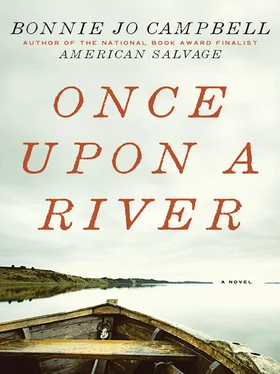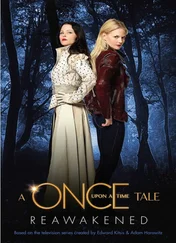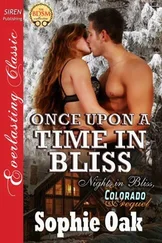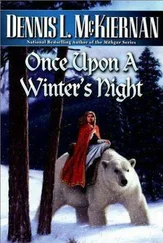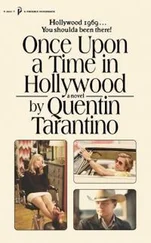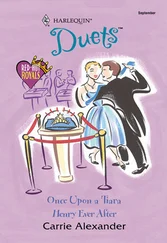Margo made her way to the whitewashed shed—someone had rinsed the blood off the wall and placed a blanket-sized piece of mill felt over the ground where her father had been lying. Margo picked up the trail that led to the road. When she saw the Ford truck still parked on the gravel driveway, the scene was so ordinary that she expected to see Crane sitting behind the wheel. After a few deep breaths, she opened the door of the truck and folded down the bench seat, but found no gun there. If the police had taken the shotgun, as well as the rifle, she knew she was out of luck. If Cal or someone from the family had taken it, she would find it in Cal’s office off the living room with the rest of his guns. Margo wondered how she would be better off now, with the Murrays or without them.
Margo moved closer to the house and hid behind some maples. The dog Moe pulled against his chain and whimpered. If Margo moved in with the Murrays, she would have to wait for her mother to come get her, and there was no telling how long that would take. It was hours later when Joanna walked outside and started the Suburban. Margo ducked down. She heard boys’ voices arguing, maybe the twins. Junior came out of the house, held the door open for Cal, and walked slowly beside him down the stairs and to the driveway. Cal was taking small steps, as though just learning to walk. Junior opened the front passenger door and held out his arm as if to support his father.
“I don’t need any damned help,” Cal said in a strained voice.
He got into the front passenger seat, and Junior got into the back seat. Finally, one of the twins climbed from the back to sit between his parents. None of them looked in Margo’s direction. The Christmas lights on the oil-barrel float were still on, their colors muted in the early evening light. Saturday evening Mass would keep them away from home for at least an hour and a half. Usually Joanna went alone or with the littler kids—Cal had about as much interest in religion as Margo’s father’d had—but today Joanna might have convinced them that they ought to pray for Billy and have their souls worked on. Maybe Joanna thought there was something to be gained by showing the family in public at this time. Maybe Cal wanted to show he had not been crippled.
Margo climbed the steps, found the door key under the flowerpot where it had always been, used it in the lock, and replaced it. The kitchen was warm from the woodstove, which someone had damped down to last until they returned. The house smelled of cinnamon bread. Margo smelled turkey soup, too, which meant that Joanna, despite last night’s events, had boiled turkey carcasses as she always had done the day after the party. Margo had last been in this big, bright room last Thanksgiving when she was helping Joanna with the dishes, before she’d gone out to join the party. Margo ventured into the living room, where she’d argued with Billy for years without feeling uneasy—it was only in the last year that Billy had become strange and scary to her. The Murray house never did feel empty, even when everybody was gone. Always the place was full of scents, warmth, and energy. This evening she could feel the Murray spirits hiding around corners, hanging from the ceiling and wall fixtures. Even when she’d been welcome in this house, she had preferred to stay in the kitchen. When she’d gone into the living room to watch TV, she sat on the floor beside Cal’s chair, and he had sometimes patted her head and said, “Good girl.” Billy had whispered, “Good dog,” or “Good Nympho,” whenever Cal did it, but she hadn’t cared.
But she couldn’t stay here now, after what had happened. Where would she sleep while she waited for her mother to come?
She found a sheet of paper and a pencil and wrote a note. Dear Joanna and Cal: Thank you for your generous offer to let me stay with you. My mother wants me to come to her, but she asked me not to say where she is. Please don’t tell anyone. Love, Margaret. She left it on the kitchen table.
Margo walked into Cal’s office, a room she had never entered. Kids were not allowed, and it was a rule they all followed. The room smelled of Cal, of leather and gun oil and citrus shaving cream. It also smelled a little of sweat and whiskey.
The gun cabinet was closed but not locked. Maybe in his rattled condition, Cal had forgotten to lock it, or maybe he was so confident no one would mess with his guns that he never locked it. She opened both doors. Inside were a dozen rifles and six twelve-gauge shotguns, but not her daddy’s twenty-gauge with his initials burned into the stock.
Margo’s heart pounded as she extracted the Marlin, the gun Cal had let her use on special occasions, because it was like Annie Oakley’s, he said. Margo ran her hands over the squirrel carved into the walnut stock, the chrome lever. Cal had kept the gun oiled and polished. An electrical charge passed through her as she touched the gold-colored trigger. When she had last shot with it, there had been a tooled leather strap attached, but it had been removed, leaving only the sling swivels. She lifted the rifle to her shoulder and pointed it out the window. She pressed her cheek against the stock and looked over the iron sights at a bit of orange plastic ribbon stapled to a fence post. If she was going to leave this place and all its familiar landmarks, she would have to take this gun. She pocketed a box of .22 cartridges and gripped the Marlin in her left hand. She felt the ghosts of Murrays watching her as she returned to the kitchen. She grabbed the loaf of cinnamon bread off the counter and then headed out the same way she’d come in. The black Lab chained outside barked, and though she knew she should hurry away, she dropped to her knees on the ground beside him, held the bread away from his jaws. “Oh, Moe, I’ve missed you terribly. I should have come over to see you, I know.”
She pulled herself away from the dog, and he barked behind her. The beagles barked in their kennel. When she reached her boat, she was shaking so badly that instead of dropping the rifle onto the back seat, she dropped it into the icy river. She pulled it out quickly, but not before it was entirely submerged.
She shook the gun and wiped it as best she could with a towel from her pack. Braced now by the cold and her fear of being seen, Margo laid the rifle on her tarp and swaddled it as she would a baby. She thought the sound of her getting into The River Rose echoed all across the river and through the woods. She took a few bites from the loaf of bread, the first thing she’d eaten all day. When she set out onto the water, she felt an urge to let herself go with the current, to slip effortlessly downstream. Her mother was upstream, though, so she began to row.
WHEN MARGO HEARD three shotgun blasts in succession, the sound rattled her, made her want to shoot in response. It would still be deer hunting season for a few more days. When she saw the Slocum camping trailers on the north bank, she rowed as hard as she could to pass quickly and avoid being seen. A few hundred yards beyond that, the river curved, and Margo heard voices and laughter coming from outside the abandoned cabin that Junior called the marijuana house. She ran her boat onto the sandbar just below the place and decided to wait for full darkness, rather than risk being seen. She took off her leather work gloves and breathed onto her hands. The tiny cabin here was owned by the Murrays and until three years ago had been used by one of Grandpa’s brothers for weekend fishing. Margo listened to the teenage voices. A girl’s laughter exploded like automatic weapon fire and then was muffled by a closing door. When all was quiet for a while, Margo climbed up on the bank for a better look.
A white-tailed buck approached the river only twenty-five yards away, near the dock. Margo loaded six cartridges from her pocket into the magazine tube of the Marlin, chambered a round as quietly as she could, and cocked the hammer into the safety position. The loaded rifle felt good in her hands. When the buck stopped at the riverbank and turned to look in her direction, Margo slowed her breathing. With the rifle resting on one knee, she studied the creature, counted ten points, saw a raw V-shaped tear on his cheek, maybe a wound from fighting another male. Her hands stopped shaking. She could take it down with the .22 if she hit it in the eye or the temple. The deer lowered its head to drink from the river. The lever-action Marlin was slightly heavier than her daddy’s bolt-action rifle, but while she aimed the gun, she felt weightless and free from her exhaustion.
Читать дальше
